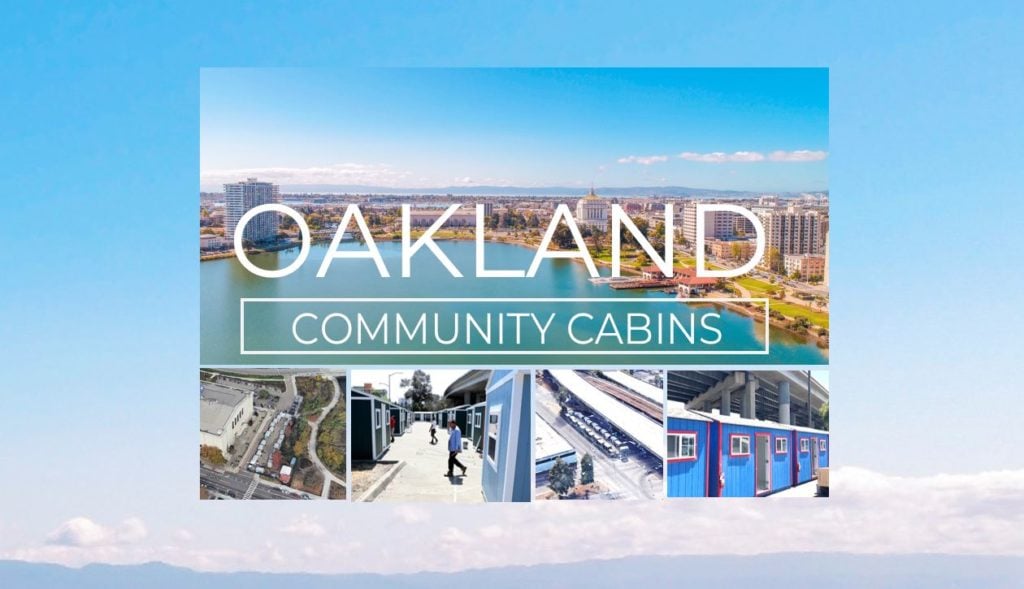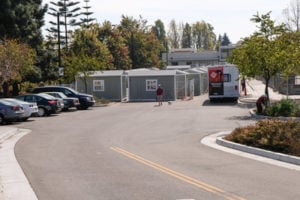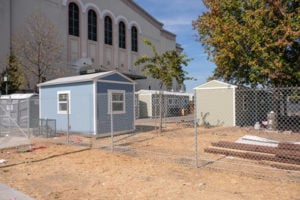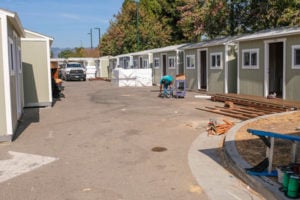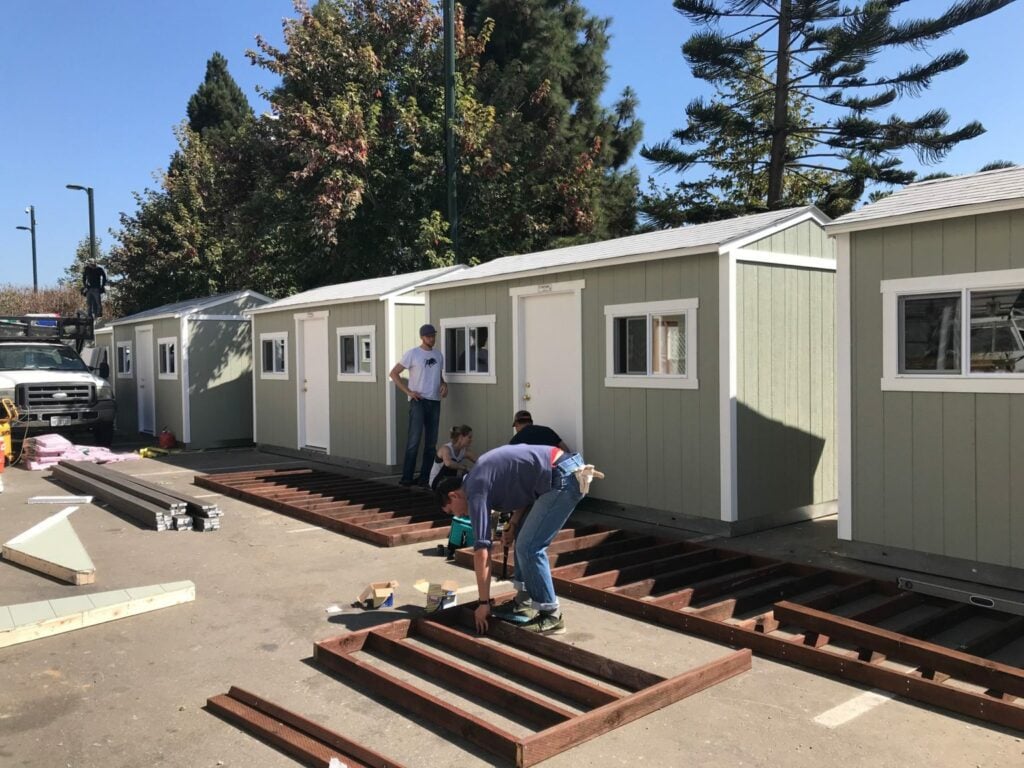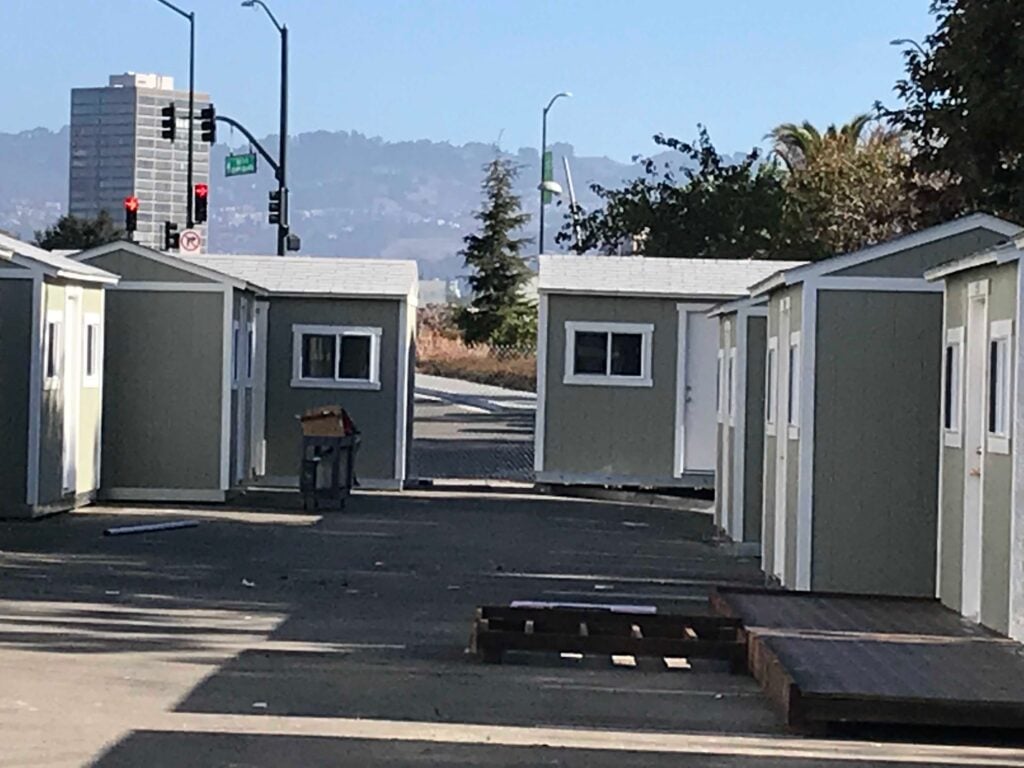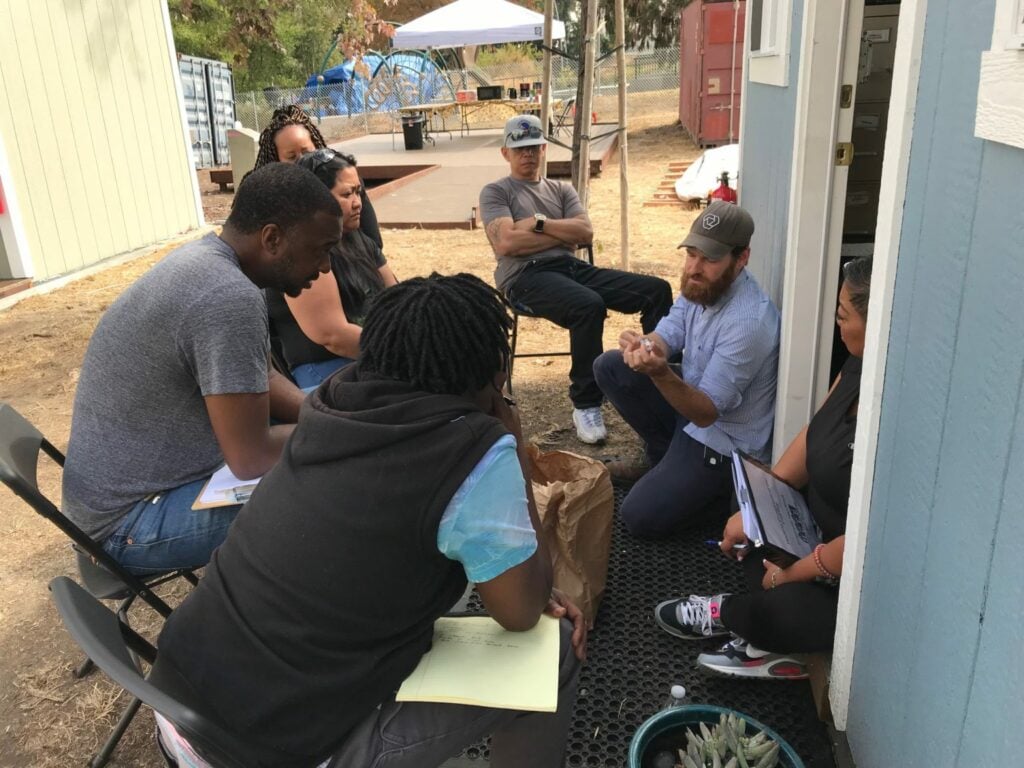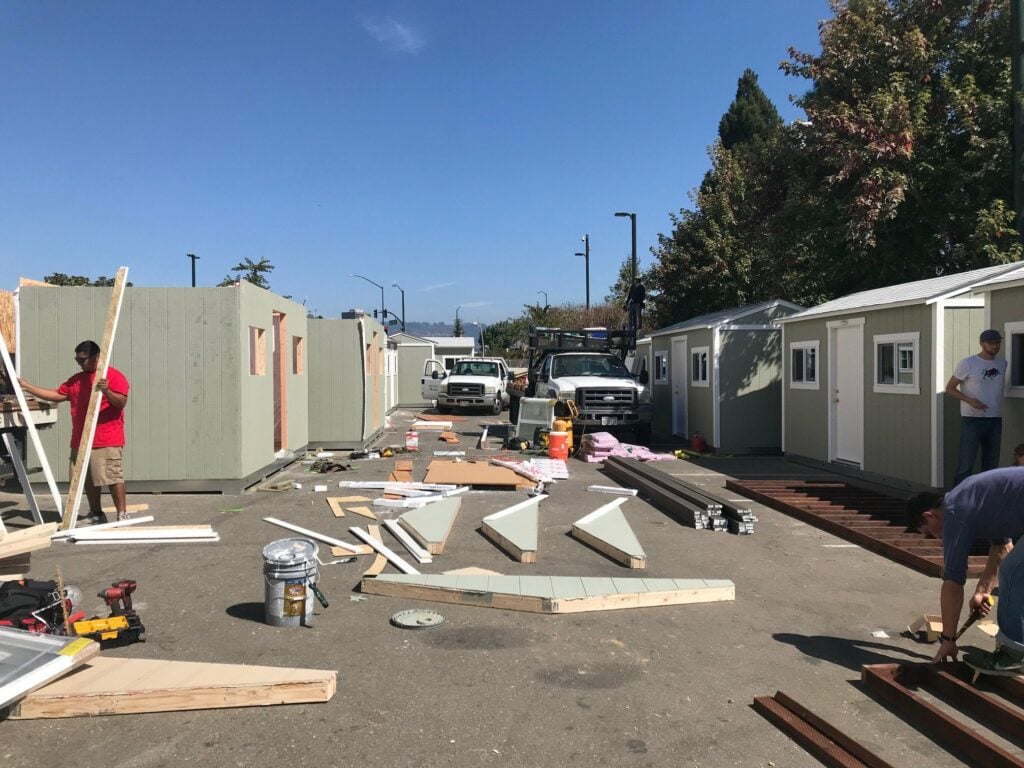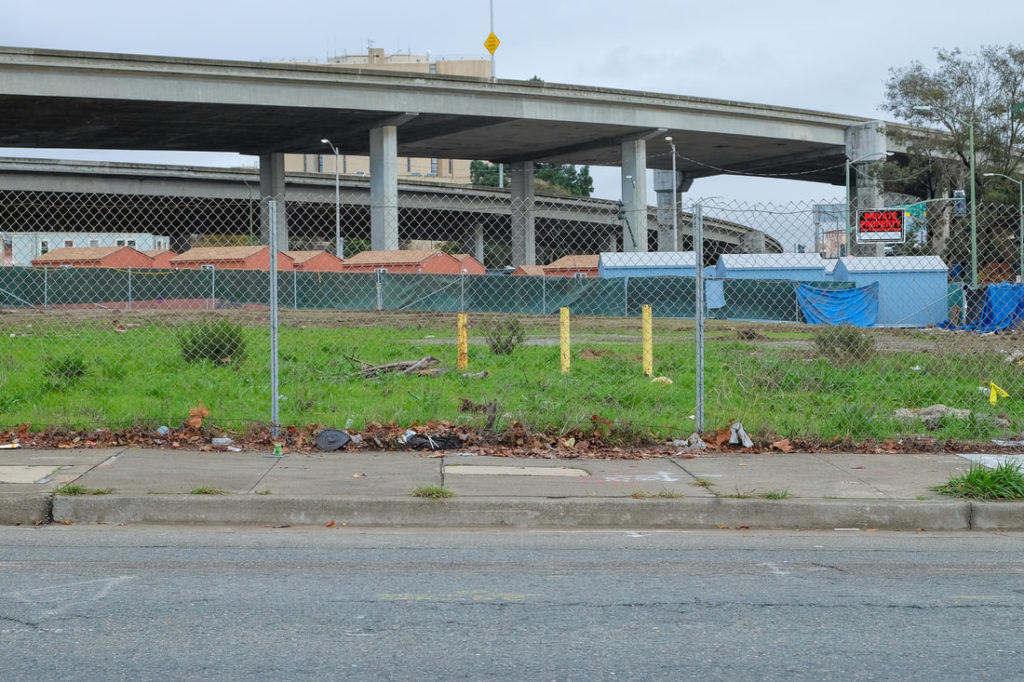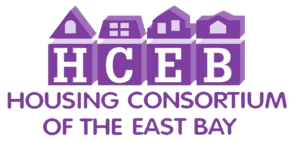Oakland Community Cabins
Oakland Community Cabins
Transitional Shelter in Lake Merritt, Northgate, 6th/Castro, & Beyond
Overview
Lake Merritt Cabin Community represents one of the six sites currently in operation under Oakland’s Community Cabin Program (all six listed below). Opened on October 4th, 2018 in the former Kaiser Auditorium Parking Lot across from Lake Merritt, the 20-cabin/40-bed transitional shelter project is designed to help alleviate and eliminate camping at Lake Merritt.
Context:
- Launched in late 2017, Oakland’s Cabin Community projects are designed as temporary transitional shelters to help stabilize the homeless and assist in the finding of permanent housing.
- Community Cabins are part of a multi-prong strategy in the city to house people – beyond cabins, City has opened three safe RV parking sites and a trailer site for 67 state-owned trailers (invested in the site for water and sewer connections).
- The City of Oakland and private donors/volunteers have set up Cabin Community Temporary Shelter Units at six locations (listed below).
- Designed as geographically focused intervention to locate communities near existing encampments in order to remove unregulated and/or unsafe encampments.
- Sites are typically developed in 4-5 weeks (as little as 3 weeks) from approval to use a site to opening.
Mission: Provide an alternative to encampments to help move people off the streets, through bridge housing facilities, and into long-term housing.
Site
Owner: Land owned by the City of Oakland, across two parcels.
Previous Use: Former Henry J. Kaiser Convention Center parking lot – the convention center is been vacant/dormant for years, with plans to rehab the convention center soon.
Use Arrangement: Convention Center to undergo major rehab in the next 1-2 years. Informal agreement with the site’s future developer to allow the City to continue the Cabin Community until the developer is ready to start rehab/construction and needs access to the site, at which time the community will then be relocated to a new site.
Site Selection Criteria Considerations:
- The site is adjacent to the City’s Peralta Park, which is the site of many homeless encampments.
Funding
| Upfront Development* | $308k | Funding from CA State (via HEAP in 2019 and 2020; HHAP in 2021), funds go to City. Net of in-kind donations for dev services valued at $65k, budget uses total was $243k – see below. (See Budget Detail) |
| Cost Per Cabin* | $15k | 20 cabins, 40 beds in total |
| Operating Costs* | $850k /year | Funding from CA State (via HEAP in 2019 and 2020; HHAP in 2021), funds go to City. |
| Cost Per Bed* | $21k/year | $58/bed/night (cabins are double occupancy, assuming every cabin has two occupants) |
*approximations
Development
| Lead Deal Coordinator | 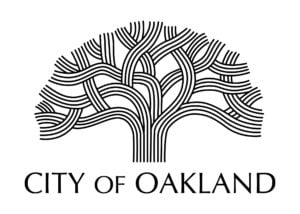 |
City of Oakland – Mayor’s Office and CAO |
| Community Engagement | 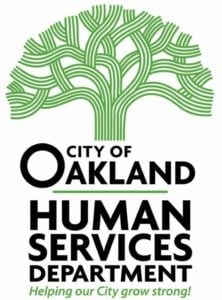 |
City of Oakland coordinated across departments – Human Services coordinate with service provider (radius, census) + Dept of public works for site clean up + Police Dept |
| Construction / Project Management | 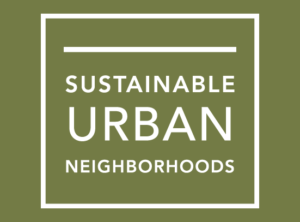 |
Sustainable Urban Neighborhoods, a community-focused building and development company. Pro-bono GC and PM. |
| Shelter Vendor / Manufacturer | 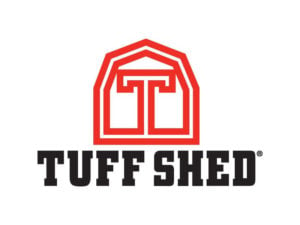 |
Tuff Sheds (for first sites) / California Sheds (for subsequent, latest sites) |
| On-Site Assembly | – | Third party vendors subcontracted under Sustainable Urban Neighborhoods, including electricians and builders |
Operations
Lead Operator:
| Operator | Housing Consortium of the East Bay, an Oakland-based nonprofit that works in the area of disability and housing. Their work includes “providing housing outreach and support services; developing affordable housing, partnering with other nonprofit and for profit companies to secure set-asides within larger rental communities; and owning and operating special needs affordable housing.”https://hceb.org/ | |
| Agreement | Agreement to provide services for 24-month period.See below for Projects’ Scope of Required Services, Facility Standards and Program Standards documentation. | |
| Staffing |
|
|
| Services Provided | Operator provides wraparound services, which include intensive case management, linkages to medical and mental health support, groups and classes for self- awareness. In addition, they focus on housing navigation and employment assistance such as resume building, interview preparation. These services are designed to help people move into – and stay – in permanent housing. | |
| Cost |
|
|
| Operating Expenses |
|


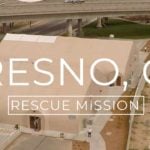

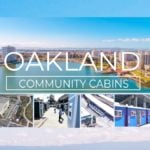

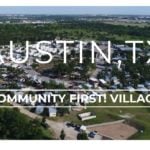
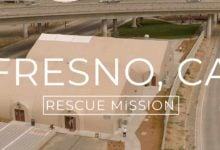
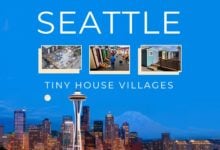 NEXT
NEXT